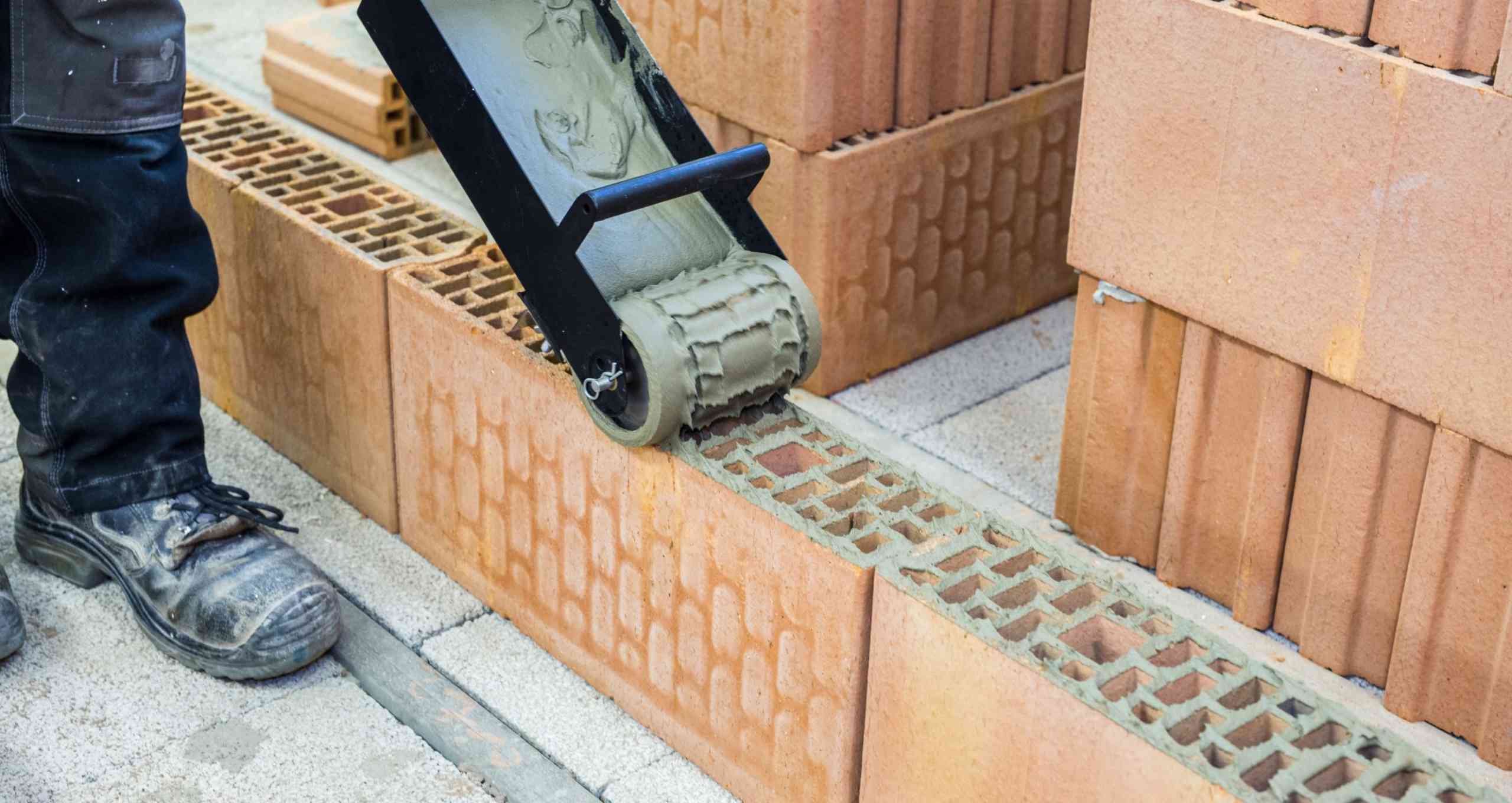Hollow clay blocks are not new. They have been a staple of the German construction industry (and elsewhere on the continent) for a long time. After decades of cavity-wall construction, the the UK market is now recognising hollow clay blocks as a viable alternative, and has been gaining popularity for its excellent thermal and acoustic properties. This article will delve into the advantages of hollow clay blocks in comparison to traditional cavity walls and the benefits they offer in modern construction.
Hollow clay blocks pictured above from Porotherm.
Hollow clay blocks in the UK
Wienerberger Porotherm and Ziegler are two major manufacturers, although the former appear to have more of a market in the UK currently, with distribution from EH Smith, Solihul
Thermal Insulation
One of the primary benefits of hollow clay blocks is their exceptional thermal insulation. The hollow cores within these blocks create air pockets that act as natural insulators. As a result, they effectively regulate indoor temperatures, providing warmth in winter and keeping interiors cool during summer. This property reduces the need for excessive heating or cooling, ultimately leading to energy savings and improved energy efficiency in buildings. In comparison, cavity walls may require additional insulation materials to achieve similar thermal performance.
It’s much easier to upgrade the thermal performance of a single leaf wall than a cavity wall – adding breathable insulation externally. Cavity walls will always present a risk of condensation in the cavity.
Sound Insulation
Hollow clay blocks not only excel in thermal insulation but are also remarkably effective in sound insulation. The air pockets within these blocks, combined with their dense clay material, create a barrier that significantly reduces the transmission of noise from outside. This quality is particularly valuable in urban areas, where noise pollution can be a major concern. Cavity walls, while offering some sound insulation, may not match the superior acoustic properties of hollow clay blocks.
Durability
Clay is renowned for its durability, and hollow clay blocks are no exception. They are built to withstand the test of time, making them a reliable choice for long-lasting construction. These blocks do not require frequent maintenance, ensuring that the building remains in good condition over the years. In contrast, cavity walls may be more susceptible to moisture-related issues and may require additional protective measures to maintain their durability.
Sustainability
Sustainability is a crucial consideration in modern construction, and hollow clay blocks align with this focus. They are manufactured from natural clay, which is an abundant and renewable resource. The production process for clay blocks has a lower environmental impact compared to some other construction materials, making them an eco-friendly choice for builders and architects.
Cost-Effectiveness
Hollow clay blocks are known for their cost-effectiveness, not only in terms of the materials themselves but also in the construction process. Their lightweight nature makes them easier to handle, reducing labor costs and speeding up construction. Additionally, their excellent thermal insulation properties lead to energy savings, further contributing to cost-effectiveness over the long term.
While the cost of materials for a clay block wall may surpass that of a conventional brick or concrete wall, the labor expenses are reduced. This reduction is attributed to the minimal mortar application required for clay blocks, limited to a thin, continuous 1mm layer along the horizontal interface between courses. Furthermore, the need for brick cutting is minimised due to the availability of pre-formed blocks designed for corners and lintels.
Versatility
Hollow clay blocks come in various sizes, shapes, and finishes, allowing for versatile design options in construction. Architects and builders can get creative with the aesthetics of a building, giving homeowners the freedom to personalise their spaces. This versatility in design is often more challenging to achieve with traditional cavity walls, which may have a more limited range of finishes.
Hollow clay blocks offer several key advantages when compared to traditional cavity walls. Their superior thermal and acoustic insulation, durability, sustainability, cost-effectiveness, and design versatility make them an attractive choice for modern construction projects. Whether you are building a new home or renovating an existing one, hollow clay blocks provide a sustainable and energy-efficient solution that can enhance the comfort and longevity of the structure. By choosing hollow clay blocks, you not only invest in the well-being of your home but also contribute to a more sustainable and eco-friendly future in construction.
Who are we?
Design for Me is a free platform to help you quickly find the right design professional for your home project. We’d recommend posting your project on Design for Me to see who shows interest and has knowledge of hollow clay block construction.
Once you register your project, we’ll match it with 100s of top architects or interior designers in your area and beyond, and you can see who may be available and eager to work on your project straight away.
- Quickly see who’s interested in your job.
- Create a shortlist.
- Invite up to three for a no-obligation consultation.
Emily Design for Me


